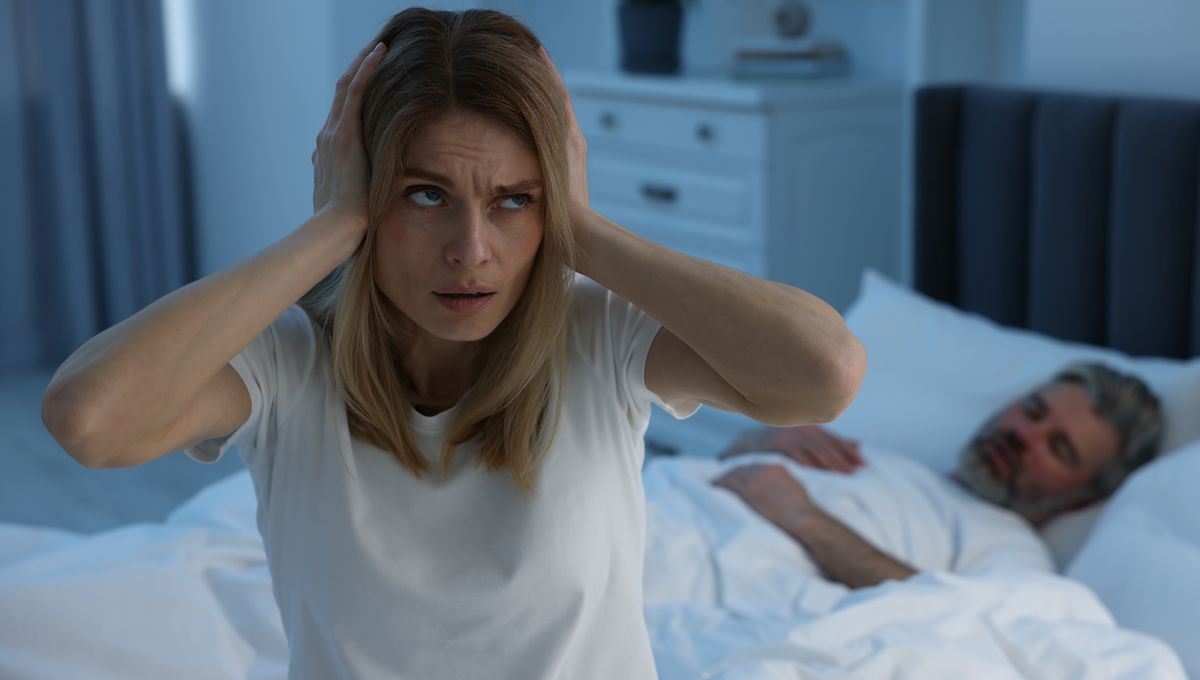
A new survey has revealed something troubling happening in US bedrooms. Oh behave yourself, it’s nothing like that. Data from the American Academy of Sleep Medicine (AASM) shows that one-third of people occasionally or frequently retreat into a separate room to get some shut-eye away from their partner.
The “sleep divorce” appears to be a particularly popular option among millennials, with 43 percent of respondents in this age group saying they sleep in another room at least some of the time. This compares to 33 percent of Gen Xers and 28 percent of Gen Z, with boomers bringing up the rear at 22 percent. Men were also more likely than women to decamp to the sofa or guest bedroom.
If you’ve never spent a night staring at the ceiling while the person next to you tosses and turns, or makes sounds akin to an elephant with hayfever, we regret to inform you that you may be the problem sleeper yourself. However, a “sleep divorce” is not necessarily as negative as it sounds.
“Although the term ‘sleep divorce’ seems harsh, it really just means that people are prioritizing sleep and moving into a separate room at night when needed,” said AASM spokesperson and pulmonologist Dr Seema Khosla in a statement.
“We know that poor sleep can worsen your mood, and those who are sleep deprived are more likely to argue with their partners. There may be some resentment toward the person causing the sleep disruption which can negatively impact relationships. Getting a good night’s sleep is important for both health and happiness, so it’s no surprise that some couples choose to sleep apart for their overall well-being.”
It’s important to know that snoring can be more than just an irritation, though – it can sometimes be a sign of a more serious condition.
“If it is one partner’s loud snoring that is leading to separate sleep spaces, then you should encourage that partner to talk to a doctor about obstructive sleep apnea,” said Khosla. “This applies to both men and women who may snore.”
If snoring is accompanied by choking, gasping, or silent pauses in breathing during sleep, this is a stronger indicator of sleep apnea and should be a sign to see your doctor.
According to the AASM, feeling sleepy during the day, feeling unrefreshed when waking up in the morning, having difficulty concentrating, headaches, and nocturia (waking up in the night to go pee) are all possible additional symptoms of sleep apnea.
Of course, sleep apnea is not the only explanation for snoring – for some, allergies could be the culprit, or even the position you’re sleeping in. In any case, it’s always best to get checked out by a professional (and steer well clear of the latest trending TikTok “remedies”).
Sleep divorce is not the only way in which American couples are adapting their sleep routines, with other reported interventions including using earplugs or a silent alarm. Overall, though, the survey showed that 42 percent of the over 2,000 respondents don’t make any changes at all.
We all know the importance of a good night’s sleep, but there are so many reasons why it can be difficult to achieve. A sleep divorce might sound like an extreme option, but for some of the respondents to this survey, it appears to be a sacrifice worth making.
And even if you’re not both sleeping in the bed, that’s not to say you can’t use it for… other stuff.
The content of this article is not intended to be a substitute for professional medical advice, diagnosis, or treatment. Always seek the advice of qualified health providers with questions you may have regarding medical conditions.
Source Link: More Than A Third Of Americans Are Opting For A “Sleep Divorce”